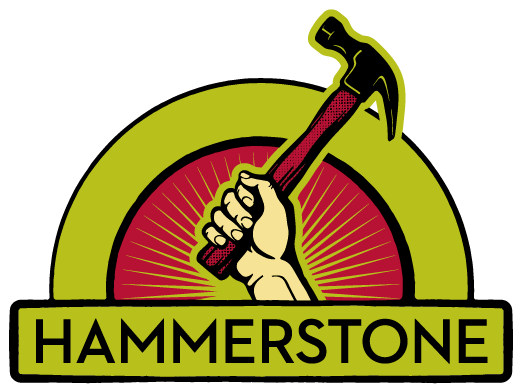Guidance on how to choose payment
Why do we use a sliding scale?
Hammerstone serves women and gender minorities, groups traditionally under-represented in the trades, in order to increase their self sufficiency and support their possible entry into a career in the trades. We recognize that the fixed prices of our courses hinders access for folx who may benefit the most from this knowledge and these skills. In the interest of providing equitable access, we use a sliding scale system for tuition.
A sliding scale is a tool that allows us to offer services to a wide range of economic groups while maintaining a sustainable business. The goal of a sliding scale is to build economic justice. It requires full participation and thoughtful consideration in order to function. If implemented successfully, everyone pays a similar percentage of their income for the same service.
Many organizations that use sliding scales are able to fill the economic gap with outside funding. Hammerstone does not rely on grants or any other outside funding; therefore we structure our sliding scale so that the upper tiers of the scale subsidize the lower tiers. The true cost of running a Hammerstone Class falls in the middle of the sliding scale range. This includes paying our teachers a fair wage, covering our insurance, maintaining our tools and facilities, administering the program, and supporting our family. Paying according to one’s resources creates a more equitable, diverse and sustainable community. Paying more if you can allows you to feel invested in a supportive community.
How To decide how much to pay?
A sliding scale requires honest and thoughtful consideration of the complexities of income, wealth, class, race, and other forms of inequity that affect an individual’s ability to pay. We do not require income verification for our sliding scale. We trust that participants will choose a sliding scale amount that reflects what they are able to pay, and also reflects their desire to support others in joining our community.
We ask that you consider the following guidelines to help you navigate the question of how much to pay:
Consider paying less on the scale if you…
are supporting children or have other dependents
have significant debt
have significant medical expenses not covered by insurance
have educational expenses
receive public assistance
have immigration-related expenses
are a senior citizen with a fixed income
Consider paying more on the scale if you…
own the home you live in
have investments, retirement accounts, or inherited money
travel recreationally
have access to family resources in times of need
work part time by choice
have a relatively high degree of earning power due to your level of education (or gender and racial privilege, class background, etc.). Even if you are not currently exercising your earning power, we ask you to recognize this as as choice.
are dedicated to supporting others’ access to Hammerstone classes
Considering sacrifice VS. Hardship
Please also consider the idea of “sacrifice” versus “hardship” when choosing how much to pay.
Sacrifice:
“If paying for a class, product, or service would be difficult, but not detrimental, it qualifies as a sacrifice. You might have to cut back on other spending in your life (such as going out to dinner, buying coffee, or a new outfit), but this will not have a long term harmful impact on your life. It is a sacred sacrifice in order to pursue something you are called to do.”
Hardship:
“If, however, paying for a class, product, or service would lead to a harmful impact on your life, such as not being able to put food on the table, pay rent, or pay for your transportation to get to work, then you are dealing with hardship. Folks coming from a space of hardship typically qualify for the lower end of the sliding scale.”
“I find the idea of sacrifice versus hardship to be a very useful nuance when talking about class and access because it recognizes and respects that paying for something might still be a challenge even if it is just a short-term one, while giving appropriate space for those who are dealing with financial hardship.”
–Alexis J. Cunningfolk, Worts and Cunning Apothecary
Resources
If you would like to read more, we recommend these resources, which have helped us develop our sliding scale policy:
